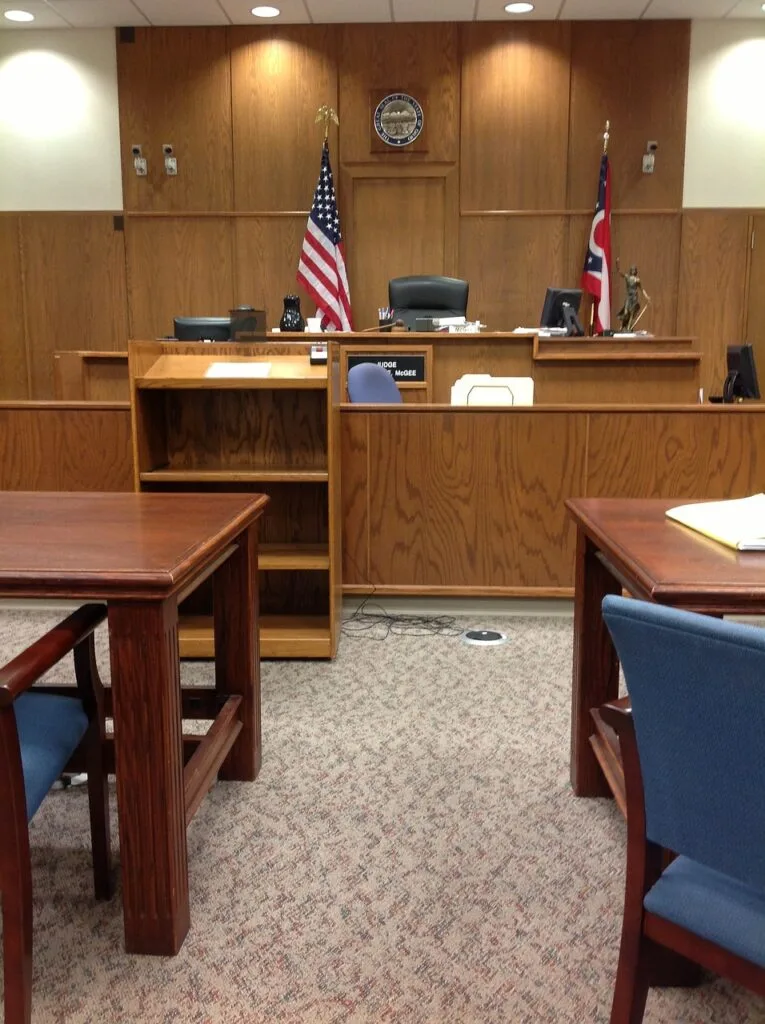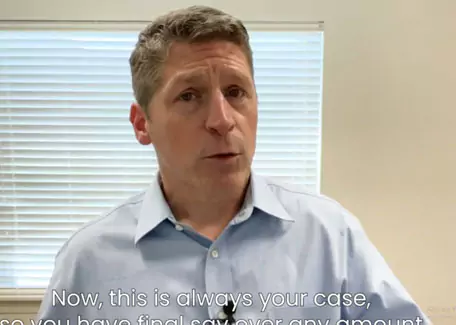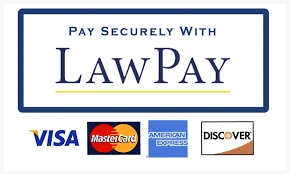Can I Get a Theft Charge Expunged from My Record in Baton Rouge?

Starting the process of expunging a theft charge in Baton Rouge can seem complex, but it’s a positive move toward a future free from the weight of past mistakes. Expungement isn’t just about paperwork; it’s a life-changing step that unlocks new opportunities for jobs, education, and personal growth that might have been out of reach. It’s about rewriting your story, regaining your dignity, and reclaiming your place in the community with a clean slate. For those burdened by their history, expungement is the path to a new beginning, where yesterday’s errors don’t hold back tomorrow’s achievements.
If you’re prepared to put your past behind you and start fresh, seeking professional help is a smart choice. Contact Big River Trial Attorneys at 225-725-6000 for a complimentary consultation and take that first step towards a clear record.
Theft Charges and Expungement in Baton Rouge
Theft charges in Louisiana can display a wide range from petty theft to more serious offenses, each carrying different implications for your criminal record and your future prospects. In Baton Rouge, there are ways to expunge these charges, offering a fresh start. This process is not a simple journey as it requires a deep understanding of the Louisiana legal system.
Louisiana Expungement Law
Under Louisiana law, expungement essentially is:
- Deleting the criminal record
- Restoring the individual to the status they held before the offense
- Effectively erasing the conviction, dismissal, or acquittal from records
- Enabling most individuals to legally deny the event
It is important to note that expunged criminal records aren’t completely erased; they can still be accessed by law enforcement agencies and certain state licensing boards under specific conditions, such as when applying for a law enforcement job. Despite being sealed from public view, these entities must keep an expunged record confidential.
Are You Eligible for Expungement?
Eligibility for expungement is not a one-size-fits-all situation. It varies based on the type of crime, the time that has elapsed since the case result, and the specific details of the conviction. For instance, if you have a single felony offense and no other convictions except for traffic citations, and all fines and restitution related to the case are paid in full, you may be eligible for expungement every 15 years.
Assessing Your Criminal Conviction
To determine if your theft conviction is eligible for expungement in Baton Rouge, it’s crucial to examine the specific details surrounding your conviction. The nature of your theft charge, whether it’s a misdemeanor or a felony, plays a critical role in this assessment. As a general rule of thumb, theft charges categorized as misdemeanors, which are generally less serious offenses, are more likely to be eligible for expungement.
Certain details, such as fulfilling all the conditions of the sentence, including probation and repayment, are required to qualify for expungement. It’s like a checklist that needs to be completed before you can move forward.
Waiting Periods
The waiting period to apply for expungement of a conviction varies based on the severity of the offense, with a five-year wait for misdemeanors and a ten-year wait for felonies. During this waiting period, individuals must remain free of any new felony convictions to be eligible for expunging misdemeanors, and free of any convictions for a felony expungement, with a cap of one expungement per type every 15 years.
After filing for an expungement, you must consider several waiting periods:
- About 60 days for any responses to the filing.
- A 30-60 day period to receive the Certificate of Compliance from the Louisiana State Police.
- If the prosecution did not initiate charges, the filing for expungement can only occur after the prescribed time for bringing charges has lapsed.
Disqualifying Factors
Just as there are factors that make you eligible for expungement, there are also factors that can disqualify you. Not all felonies qualify for expungement under Louisiana law, but certain categories of felonies could involve:
- Violent crimes
- Sexual violence
- Drug trafficking
- Offenses against minors
Certain cases, such as those involving a misdemeanor conviction or misdemeanor domestic abuse battery, do not qualify for expungement.
This means that if you’ve been convicted of a criminal offense such as aggravated assault, kidnapping, or the distribution of controlled dangerous substances, for example, these felonies cannot be expunged.
Understanding expungement requirements can seem complex, with each case bringing its unique factors. Clearing your record involves meeting specific conditions that depend on the crime and your past. This is where we at Big River Trial Attorneys can help. With our deep knowledge of Louisiana’s laws, we can clarify the expungement process and provide guidance tailored to your situation. We’re ready to explain the necessary steps and help you move forward, leaving your past behind.
Initiating the Expungement Process
 Once you’ve confirmed your eligibility for expungement, the expungement process involves several steps, from petitioning the court to ensuring the conviction is removed from public records. For some, the journey can start immediately if they were arrested but not prosecuted, as in cases of formal dismissal, granted motions to quash, or acquittal. Each case is unique, and as such, it’s crucial to understand the specific requirements and procedures of the expungement process in Baton Rouge.
Once you’ve confirmed your eligibility for expungement, the expungement process involves several steps, from petitioning the court to ensuring the conviction is removed from public records. For some, the journey can start immediately if they were arrested but not prosecuted, as in cases of formal dismissal, granted motions to quash, or acquittal. Each case is unique, and as such, it’s crucial to understand the specific requirements and procedures of the expungement process in Baton Rouge.
With the help of Big River Trial Attorneys, you can confidently address the nuances of your situation. Our experienced team can guide you through each step, ensuring that all necessary paperwork is filed correctly and efficiently, even representing you in court if needed.
Gathering Documentation
The first step in the expungement process is to gather the necessary forms and documents. You can obtain these from the Louisiana Clerks of Court Association website or the Justice and Accountability Center of Louisiana website. The application for expungement must include your criminal record among other necessary documents.
Also, the parish court clerk may request additional documents that need to be compiled for the expungement process. It’s a meticulous process, but it’s a crucial one to ensure that your application is complete and accurate, leaving no room for errors or omissions.
Filing the Expungement Petition
Once you’ve gathered your documents, you must then file the expungement petition. The correct forms can be obtained from the Louisiana Clerks of Court Association website, the Law Library of Louisiana, or the Justice and Accountability Center of Louisiana. The expungement petition, alongside a recent copy of your criminal record, should be filed with the court clerk.
The criminal record required to accompany the expungement petition must be obtained from the state within 30 days of filing the petition. Filing the petition is more than just filling out forms and submitting them. It’s about ensuring the accuracy and completeness of the paperwork. Our attorneys at Big River Trial Attorneys play a crucial role in ensuring the expungement petition is accurate and complete, decreasing the likelihood of delays or rejections.
Managing Court Proceedings
Court proceedings can be a daunting part of the expungement process. They may become necessary if there are objections to the eligibility of the expungement, especially from parties such as the district attorney or victims. After filing for expungement, there is a standard waiting period of around 60 days for a response from the court.
If the expungement petition is contested by an objection, it can add a further 30 days or more to the process due to the scheduling of a court hearing. It’s a lengthy process, but with our team at Big River Trial Attorneys by your side, you can rest assured that every step will be managed professionally and diligently.
Financial Considerations for Expungement
 The expungement process is not just a legal journey; it’s also a financial commitment. The base filing fee for an expungement petition in Louisiana is $550, which typically covers the following:
The expungement process is not just a legal journey; it’s also a financial commitment. The base filing fee for an expungement petition in Louisiana is $550, which typically covers the following:
- Louisiana State Police’s Bureau of Criminal Identification and Information
- The court
- The parish district attorney
- The parish sheriff
Certain situations may raise the overall cost to approximately $700.
Expungement fees in Louisiana are generally non-refundable, even if the expungement is not granted. The New Endings and Opportunities Act may make the expungement process in Louisiana more accessible and free of cost for around 1.3 million people, potentially changing the financial requirements for future applicants through a fee waiver.
Please be aware that legal regulations including potential dollar amounts or imprisonment lengths may change over time. For the most current and accurate information, consult with a legal professional to ensure accuracy in your specific situation.
Impact of Expungement on Your Future
Expungement can essentially provide you with a clean slate, removing barriers that might have been placed on your path due to past convictions. This process can positively impact your future in many ways such as:
- Employment Opportunities: Many employers conduct background checks on potential hires. With an expunged record, your past convictions typically won’t appear, which can increase your chances of landing a job. It’s like turning over a new leaf in your professional life, allowing you to pursue career paths that were once closed off.
- Housing Possibilities: Just like employers, landlords may also check your criminal history. An expungement can prevent past convictions from affecting your ability to rent or buy a home, opening up more living options and helping you secure a place to call your own.
- Educational Prospects: If you’re aiming to go back to school or apply for scholarships, an expungement can remove hurdles that might stand in the way of furthering your education.
- Professional Licensing: Certain convictions can prevent you from obtaining professional licenses. Once expunged, these convictions are no longer an impediment, allowing you to pursue various professional certifications and licenses with greater ease.
- Personal Growth: Beyond the tangible benefits, expungement can also offer a psychological boost. It acknowledges that you’ve moved past your previous mistakes, giving you a sense of freedom and a fresh start to rebuild your life.
- Voting Rights: In some cases, an expungement can restore voting rights, allowing you to participate fully in the democratic process.
- Credit and Loans: Although expungement doesn’t directly affect your credit score, having a cleaner record can indirectly help when applying for loans, as it improves your overall profile to lenders.
It’s important to remember that while expungement offers numerous benefits, it doesn’t make you immune to consequences for future legal issues. Nonetheless, it’s a powerful step towards a brighter future, free from the shadow of past convictions.
Why Choose Big River Trial Attorneys
 Choosing the right legal team to represent you in the expungement process is a critical decision. At Big River Trial Attorneys, we’re more than just a legal firm. Our firm has handled thousands of criminal cases with a firm commitment to protecting our clients’ rights and freedoms, whether they have a court-appointed attorney or choose to hire us. Our clients’ testimonials highlight our diligence and capability in providing not only professional legal advice but also emotional support. We understand that this journey is more than just a legal process; it’s about reclaiming your life, and we’re here to guide you every step of the way.
Choosing the right legal team to represent you in the expungement process is a critical decision. At Big River Trial Attorneys, we’re more than just a legal firm. Our firm has handled thousands of criminal cases with a firm commitment to protecting our clients’ rights and freedoms, whether they have a court-appointed attorney or choose to hire us. Our clients’ testimonials highlight our diligence and capability in providing not only professional legal advice but also emotional support. We understand that this journey is more than just a legal process; it’s about reclaiming your life, and we’re here to guide you every step of the way.
Ready to Clear Your Record? Contact Big River Trial Attorneys
Take the decisive step towards a brighter future by contacting Big River Trial Attorneys today. If you’re seeking to expunge a theft charge from your record in Baton Rouge, our dedicated legal team is here to guide you through the process with precision and care. Don’t let your past dictate your future—call us at 225-725-6000 for a free consultation and embark on the path to restoring your good name and opening doors to new opportunities.
Frequently Asked Questions
Can I expunge a theft charge if I have multiple convictions?
If the additional convictions are non-violent misdemeanors, you may still be eligible for expungement. However, if you have multiple felony convictions, this may affect your eligibility. It’s ideal to consult with an attorney to assess your specific situation. Each case is unique, and various factors such as the nature of the offenses and the time that has elapsed since their occurrence can influence the case’s outcome.
How long does the expungement process take from start to finish?
The expungement process can vary in length, but typically it can take anywhere from 3 to 6 months, depending on the complexity of the case and the court’s schedule. The timeline can be influenced by factors such as the responsiveness of the court system and any challenges or objections that may arise during the process. It is important to be patient and to ensure that all required steps are followed thoroughly to avoid any unnecessary delays.
Will I need to appear in court during the expungement process?
You may or may not need to appear in court. If there are no objections to your expungement petition, a court appearance may not be necessary. However, if the petition is contested, you will likely need to attend a hearing. Your presence at the hearing allows you to address any concerns and to advocate for the expungement of your record.
Can an expunged theft charge be used against me in future legal proceedings?
An expunged record is generally not accessible and cannot be used in most civil matters. However, it may still be considered in future criminal proceedings or when applying for certain state licenses. While expungement can greatly benefit you by clearing your public record, it is not an absolute shield in all legal circumstances.
Does expungement restore my right to own a firearm?
Expungement does not automatically restore your right to own a firearm. If your conviction included a restriction on firearm possession, you would need to seek additional relief through the court to have this right restored. It is important to understand that expungement is a legal process focused on clearing your record, and separate legal action may be necessary to address specific rights such as firearm ownership.



